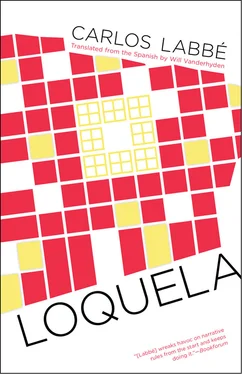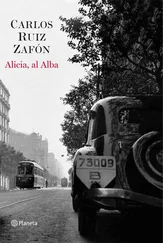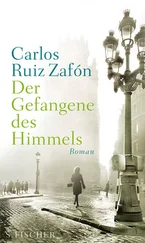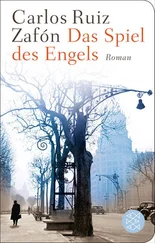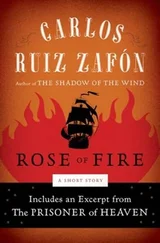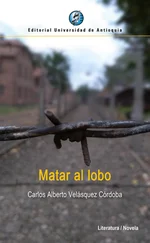I’m already coming to the end of my letter, my dear. I write you at the hour of greatest silence in this city that is never silent, at sunrise in this Santiago where the sun never rises. Now the wind off the river comes against the windows of this house, it makes them shake but they remain intact, like writing on paper; it pushes the white of the page, it dirties but doesn’t rip it. I hope this happens when I have nothing left to tell you, when the only thing left is the description of the coastline of Neutria vanishing behind me as I dragged my suitcase toward the bus station, running away before He Who Is Writing the Novel appeared with his gun and left me there on the floor, my eyes filled with their own liquids, which would prevent me from seeing how the ocean rose up, sweeping away the beach, the pavement, the avenues, the valley of Neutria, filling the empty space above it with water, the empty space which I’d filled first with little houses, then a pier, businesses, plazas, buildings, schools, a university, a stadium, and a touristic boardwalk along the sea so that people would come from other places to live here, so that a couple who walked through the university entrance would take each other by the hand, decide to love each other, pass time and grow old together, in these streets, weep for the other at his or her funeral; but the water will also sweep away this Neutrian cemetery where I won’t end up because it will have died with me, because it isn’t possible to put a body in a page, because paper isn’t earth.
I tried to drag my suitcase full of notebooks through the trash-cans, the rubble, and the enormous dust cloud: with each passing step the cement threatened to cease covering the ground. When I came to the Black River I saw that the bridge had surrendered to the erosion, so I had to carefully descend the damp hillside where I sank into mud up to my knees. It wouldn’t be easy to get away from you that way; nor was I able to run when I saw the beggars who sleep under the bridge approaching. In the mud-marred landscape I distinguished their shaved heads, the firebrands on their naked skins, their faces painted with lime — the last vestiges of the most recent raid by the city’s sanitary services — that surrounded me and touched me, emitting hoarse moans, pulling at my clothes with hands covered in sores, tearing them. Beggars emerged from ruins across the city, all of them wanting a piece of me: they appeared in multitudes on the street, limping as they forded the river that no longer existed, barely splashing me at all with its remaining puddles, tugging at my skin through mutterings that were senseless yet rhymed nonetheless. As they spread my legs they incessantly asked a question that only my pain could answer. When I was able to stand and tried to run, I understood what one of them was saying: I was The Young Poet, I wanted to throw myself into the river, but a beggar caught me, threw me harshly to the ground, got on top of me and screamed that he was The Young Poet; another limping beggar approached, another, and many more who surrounded me, threw me down again and got on top of me, howling the same sentences: I was The Young Poet, I wanted to throw myself into the river, but a beggar caught me, threw me harshly to the ground, got on top of me and screamed that he was The Young Poet; another limping beggar approached, another, and many more who surrounded me, threw me down again and got on top of me, howling the same sentences: I was The Young Poet, I wanted to throw myself into the river, but a beggar caught me, threw me harshly to the ground, got on top of me and screamed that he was The Young Poet; another limping beggar approached, another, and many more who surrounded me, threw me down again and got on top of me, howling the same sentences. I ran and ran and ran through the mud, escaping. Until the sun came up.
A man found me walking with lost eyes. He climbed over the bridge rail, slipped through the bars, down to the river bed, took my arm, put his jacket around my shoulders to keep me warm, got me out onto the street, asked me what I was doing down there in the disgusting Mapocho, and so early. He told me he was going to take me to the house; the house, he said. That made me mistrustful. When I asked his name, he responded with a grimace. Before you could pull out your gun, I forced myself to run again, and lost you at a stoplight. All the way home. My grandmother, who was eating breakfast, rebuked me for getting home at such an hour and in such a state; she called me a whore. I agreed, agreed so much that I started to cry. Finally I went to my room and fell asleep.
In the afternoon my grandmother had gone out. You appeared again; you wouldn’t leave me alone. This time you pretended you were a friend of the family, that you were passing through the neighborhood and you wanted to stop in for a visit, you shyly introduced yourself as someone else, with a name that made me laugh. You claimed not to know me, but went to get in bed with me anyway; I made you believe we were going to sleep together. And for the first time. Then Alicia called on the phone to invite me to her birthday. You can’t miss it, she said. You asked me who was calling, I responded no one important. I thought I was lying to you, yet immediately I knew it was true, because Alicia could no longer do anything for me. You found me, there’s no way out. The sound of a current of air, across the metal of the hinge, I feel the wind of the river on my face: someone is opening the door. I’m waiting for you now, I’m going to stop writing so you can come in.
Oh God.
Elisa said she’d wondered why Violeta was just sitting there. Like she was waiting for her, Elisa saw a space between two cars and parked immediately, not thinking about what she was doing and not hearing the instructions of the old man with a rag for washing windshields: pull forward just so, turn in a bit more. The old man smiled at her, she ignored him. She took the path through the plaza toward the bench where she’d seen Violeta. The albino girl was holding a notebook in her right hand across her knees, hunched over, tense. Suddenly she shut her eyes and started writing. Elisa watched her from where she was leaning against a tree. She’d never seen a person like her before, such pale skin; when she didn’t move for a few seconds, she looked lifeless. No, not like a lizard, Elisa answered. Like a woman made of marble, maybe, she said when they asked her for a description, but she wasn’t referring to those actors who dress up as statues, like the detective who was trying to flirt with her had stupidly suggested. For moment it had seemed to her that time had stopped, perhaps because Violeta was writing in her notebook without paying attention to the movement of the pen. Yes, she’d had to look at the clock to realize she didn’t care at all about the time. Then she pressed the little black bag against her waist, walked to the bench, and sat down beside her. Breathing heavily, she leaned against the wooden backrest and looked at Violeta out of the corner of her eye: now she was turning the pages one after another, not reading them, as if she were reviewing the appearance of each page, looking for flaws, focusing on the layout of the letters and on the blank spaces, just like she liked to do herself, not reading. Violeta turned her face unexpectedly and asked her if she was Elisa, little Elisa. She didn’t know what to do, she pressed her hands against the wood of the seat to take stock of her own body and not feel even smaller in front of that woman, like a little girl beside her older cousin, she said, and tried to ignore the disapproving eyes of the detectives, absorbed in her tits.
She nodded, Violeta had responded by saying she didn’t remember having seen her before and yet she recognized her, because Alicia was so precise in her descriptions of people. Elisa didn’t like imagining the two of them talking about her at all, about her appearance, about her clothes; nor did she want to know why she came up in their conversations, she told the detective. Anyway, she gave Violeta an angry look, and Violeta sighed deeply, like she’d been crying for days, like a mute person registering a complaint. Only then did she smile; not to enter into confidence or anything like that, but to curtly tell her that, after all, she was the longtime girlfriend of the dearest cousin of her best friend. Elisa hadn’t dared to get up and run away, so affected was she by the way Violeta spoke, similar, she thought, to how she felt when her older brothers told horror stories around bonfires in the country so many years ago; after a silence they’d look at her and say, slowly: it was the devil incarnate.
Читать дальше
